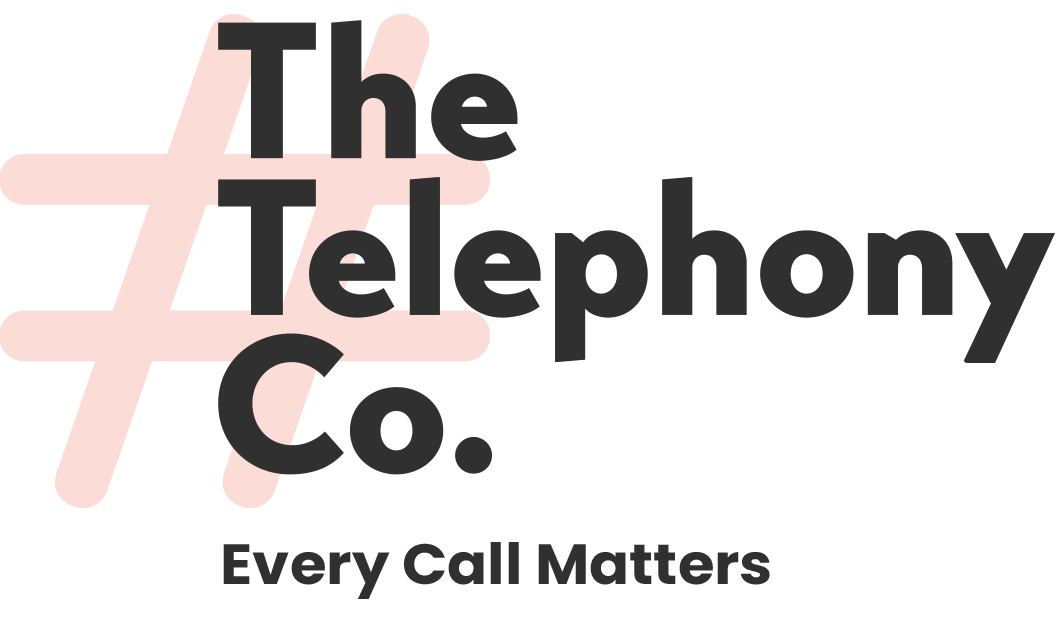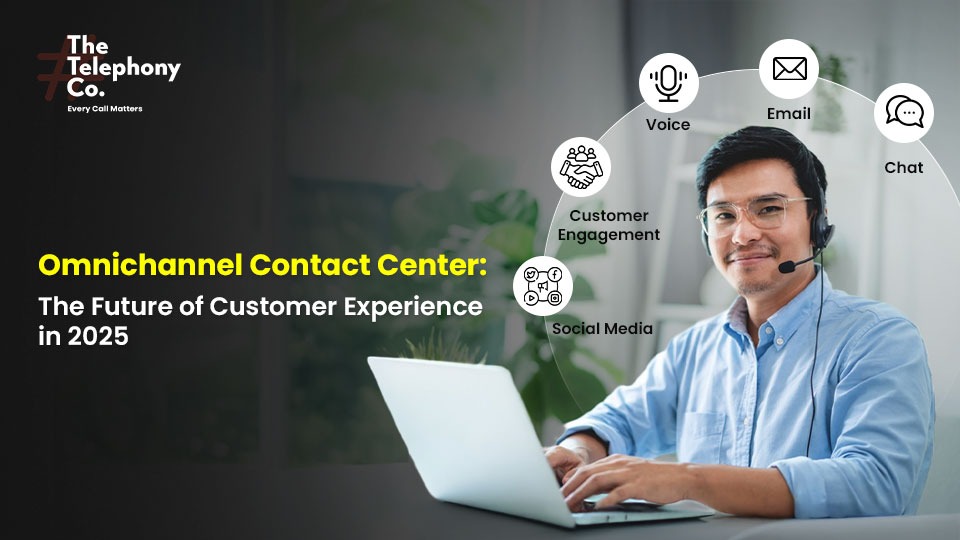Imagine calling a customer support helpline, explaining your issue, then being asked to email the same details because they can’t access your call history. Frustrating, right?
This is exactly what traditional contact centers struggle with. But in 2025, customers expect seamless experiences across every touchpoint—whether they reach out via phone, email, chat, WhatsApp, or social media.
An omnichannel contact center is a unified customer service platform that integrates all communication channels into a single interface. It ensures consistent, personalized interactions regardless of how customers choose to connect. Unlike fragmented multichannel systems, omnichannel solutions maintain complete conversation history and context across every channel.
Why does this matter in 2025? Because 73% of customers use multiple channels during their buying journey. Businesses that fail to deliver unified experiences risk losing customers to competitors who do.
Let’s explore why omnichannel contact centers have become indispensable for modern businesses.
What is an Omnichannel Contact Center?
An omnichannel contact center is a customer service platform that unifies all communication channels—voice calls, emails, live chat, SMS, WhatsApp, social media, video calls, and more—into a single, integrated system.
The core principle is simple: customers should experience consistent, personalized service regardless of how they contact your business. Every interaction is recorded, analyzed, and made available to agents in real-time.
Core Components
Unified Agent Desktop: Agents work from one interface that displays complete customer histories, ongoing conversations across channels, and relevant data from CRM systems.
Centralized Customer Data: All customer information, preferences, purchase history, and previous interactions are stored in a unified database accessible across channels.
Intelligent Routing: AI-powered systems route customer inquiries to the most appropriate agents based on skills, availability, language, and context.
Context Preservation: When customers switch channels, their conversation history, preferences, and issues follow them seamlessly.
Real-Time Synchronization: All channels update instantaneously, ensuring agents and customers always have current information.
One Platform, Every Channel- Try Our Omnichannel Solution
All Channels in One Dashboard
Faster, Smarter Support
Better Service, Every Time
One Platform, Every Channel- Try Our Omnichannel Solution
All Channels in One Dashboard
Faster, Smarter Support
Better Service, Every Time
Omnichannel vs Multichannel Contact Centers
Many businesses confuse multichannel and omnichannel ways. While they sound similar, they deliver very different customer experiences.
Multichannel contact centers offer multiple communication channels but operate them in silos. Each channel functions independently without sharing data or context. A customer who starts a conversation on chat cannot seamlessly continue it via phone without repeating information.
Omnichannel contact centers integrate all channels into a one platform. Customer data, conversation like call, chat history, and context flow seamlessly across every touchpoint. Agents can see complete all over communication histories regardless of which channel customers use.
Comprehensive Comparison Table
| Feature | Multichannel | Omnichannel |
| Channel Integration | Separate, disconnected channels | Fully integrated, unified channels |
| Data Sharing | Limited or no data sharing between channels | Real-time data synchronization across all channels |
| Customer Context | Lost when switching channels | Maintained across all interactions |
| Agent View | Separate dashboards for each channel | Single unified dashboard with complete history |
| Customer Experience | Repetitive, fragmented | Seamless, consistent, personalized |
| Conversation Continuity | Customers must restart conversations | Conversations continue smoothly across channels |
| Reporting | Channel-specific reports | Holistic, cross-channel analytics |
| Personalization | Limited, channel-based | Deep personalization using unified data |
| Implementation Complexity | Simpler but less effective | More complex but delivers superior results |
| Data & Analytics | Separate reports per channel, harder to analyze | Unified analytics and reporting across all channels |
| Cost Efficiency | Higher operational costs due to repetition | Lower costs through efficiency and automation |
| Customer Satisfaction | Lower due to repeated efforts and inconsistent support | Higher due to seamless, fast, and personalized service |
How Omnichannel Contact Centers Work
Voice Channels: Cloud-based telephony systems enable features like intelligent call routing, automatic call distribution, interactive voice response (IVR), and call recording.
Email Management: Email remains a preferred channel for complex inquiries. Omnichannel platforms automatically categorize, prioritize, and route emails to right agents.
Live Chat: AI chatbots handle initial inquiries, then transfer to agents with full context.
WhatsApp Business Integration: Omnichannel platforms integrate WhatsApp Business API, enabling businesses to send notifications, receive inquiries, and maintain conversations within unified agent desktops.
SMS Messaging: High-impact two-way texting for time-sensitive communications.
Social Media Channels: Facebook Messenger, Instagram Direct Messages, Twitter DMs, and LinkedIn messages are integrated into the omnichannel ecosystem.
Video Support: Face-to-face support with screen sharing for complex problem-solving.
 Also Read: Top Omnichannel Platforms
Also Read: Top Omnichannel Platforms
CRM and Business System Integration
Modern omnichannel contact center platforms don’t exist in isolation. They integrate deeply with:
Customer Relationship Management (CRM) Systems: Salesforce, HubSpot, Microsoft Dynamics, and other CRM platforms easy to connect with contact centers.
E-commerce Platforms: Integration with Shopify, WooCommerce, Magento, and others provides real-time order information, inventory status, and transaction histories.
Help Desk Software: Ticketing tools like Zendesk, Freshdesk, and ServiceNow integrate easily so support tickets can be seen on every channel.
Business Intelligence Tools: Analytics platforms use contact center data to give complete business insights.
AI and Automation Layer
Artificial Intelligence powers the intelligence behind omnichannel systems:
Natural Language Processing (NLP): AI understands customer intent from text or voice, enabling real routing and automated responses.
Sentiment Analysis: Systems detect customer emotions, alerting supervisors when frustration levels rise.
Predictive Routing: AI predicts which agent is best suited for each customer based on historical success rates.
Automated Responses: Chatbots and virtual assistants handle routine inquiries, freeing agents for complex question and issues.
Voice Recognition: Speech-to-text technology transcribes calls automatically, making them searchable and analyzable easy
Key Features of Omnichannel Contact Center Solutions
Modern advance omnichannel contact center platforms offer powerful features that transform customer service operations.
Centralized Dashboard and Unified Agent Interface
The unified dashboard acts as a central hub where agents manage all customer interactions from one screen. It shows real-time chats, customer history, profiles, AI suggestions, and queue updates—reducing effort, speeding up responses, and helping agents deliver better customer service.
Intelligent Chatbots
AI powers modern omnichannel platforms with smart features like chatbots that handle routine queries, sentiment analysis to detect customer emotions, and predictive analytics to forecast needs. It also automates conversation summaries and uses speech analytics to improve quality and compliance.
Comprehensive Reporting & Analytics
Track performance in real time with dashboards, channel insights, customer journey mapping, agent monitoring, historical trends, and customizable reports—empowering smarter decisions and improved customer experiences.
Self-Service Capabilities
Interactive Voice Response (IVR) automated phone systems guide customers to information or right departments using voice commands or keypad inputs.
Omnichannel Routing
Skills & Priority Routing, Customer inquiries are directed to the most qualified agents based on expertise, product knowledge, and language, while VIPs and urgent cases receive priority handling for faster resolutions.
Quality Management
Monitor, evaluate, and enhance customer interactions with call recording, screen capture, automated quality scoring, performance reviews, feedback, and compliance tools—ensuring consistent service excellence and higher customer satisfaction.
Benefits for Businesses: Why Omnichannel Contact Centers Drive Growth
Enhanced Customer Engagement
Customers engage more frequently and meaningfully when businesses offer convenient communication options. Omnichannel strategies turn passive customers into active participants. By providing easy access via WhatsApp, chat, or social media, customers share feedback, ask questions, and interact with your brand more often.
Dramatically Improved Customer Experience
Deliver faster, personalized, and seamless support across all channels. By reducing wait times, resolving issues efficiently, and anticipating customer needs, businesses create memorable experiences that boost satisfaction and loyalty.
Unlimited Scalability
Cloud-based systems scale instantly during peak demand. Add channels, agents, or capacity without infrastructure investments. Flexible resource allocation adapts to seasonal fluctuations and business growth effortlessly.
Increased Customer Loyalty and Lifetime Value
Consistent quality builds trust over time. Satisfied customers make repeat service, provide referrals, and generate higher lifetime revenue for businesses.
Better Agent Experience and Productivity
Unified modern dashboards streamline workflows and reduce tool switching. AI assistance handles routine tasks. Complete customer context empowers agents. Satisfied employees deliver better service and reduce turnover rates.
 Also Read: ECHO Contact Center Software
Also Read: ECHO Contact Center Software
Future Trends in Omnichannel Contact Centers: 2025 and Beyond
Screen Sharing as Standard: Customers will routinely share screens to show problems, with agents guiding them visually through solutions.
AI-Powered Automation: Advanced AI handles routine queries, sentiment analysis, and predictive assistance, allowing agents to focus on complex issues.
Hyper-Personalization: Customer interactions are tailored using behaviour, preferences, and history across all channels, driving engagement and loyalty.
Voice and Conversational AI: Smarter IVR systems and chatbots provide natural, human-like conversations, reducing wait times and improving first-contact resolution.
Omnichannel Integration: Seamless customer journeys across phone, chat, email, social media, and messaging apps ensure consistency and convenience.
Proactive Customer Support: Predictive analytics anticipate issues and enable businesses to resolve problems before customers even report them.
Enhanced Analytics and Reporting: Real-time dashboards, historical trends, and advanced reporting optimize performance, agent productivity, and customer satisfaction.
Remote and Hybrid Workforce Enablement: Cloud-based solutions allow agents to work efficiently from anywhere, ensuring continuity and flexibility.
How to Choose the Right Omnichannel Contact Center Software for Your Business
Assess Your Business Needs: Identify the number of agents, expected interaction volume, and the channels your customers prefer (phone, email, chat, social media, WhatsApp, etc.).
Scalability and Flexibility: Choose a solution that can grow with your business, handle seasonal spikes, and easily add new channels or locations.
Integration Capabilities: Ensure the platform integrates with your CRM, marketing tools, SMS tools and other essential business software for seamless workflows.
User-Friendly Interface: Look for intuitive dashboards and tools that simplify agent workflows and reduce training time.
Advanced Analytics and Reporting: The solution should provide real-time performance metrics, historical trends, and customizable reports for informed decision-making.
AI and Automation Features: Evaluate AI-driven chatbots, automated workflows, predictive routing, and self-service options to enhance efficiency.
Security and Compliance: Ensure the platform meets industry regulations and offers robust data protection.
Customer Support and Reliability: Choose a provider with 24/7 omnichannel support that resolves customer issues quickly.
Cost and ROI: Compare pricing models, considering both upfront and ongoing costs, and ensure the solution delivers measurable business value.
Trial or Demo: Try a free trial or demo before purchasing to explore and optimize the software for your needs.
Industries That Benefit Most from Omnichannel Contact Centers Platform
E-commerce & Retail
- Pre-purchase chat boosts conversions.
- Order tracking via WhatsApp bots.
- Easy returns & exchanges across channels.
- Personalized product recommendations.
Banking & Financial Services
- Secure account access with voice biometrics.
- Loan support via video calls.
- Fraud alerts through SMS/secure messaging.
- Investment advice via chat.
Healthcare & Telemedicine
- Appointment booking via chatbots/voice.
- Video consultations with doctors.
- SMS/WhatsApp reminders & tips.
- Prescription refills & insurance queries.
Travel & Hospitality
- Booking help & changes via any channel.
- Real-time updates via SMS/push alerts.
- Concierge on WhatsApp.
- Complaints handled via social, phone, email.
Education & E-Learning
- Admission queries via chat/social.
- Tech support across channels.
- Advising via video & messaging.
- Parent updates via SMS/email
Telecommunications
- Troubleshooting via video & screen share.
- Billing & payments across channels.
- Plan changes via chat/phone.
- Outage alerts via multiple channels.
Stop Switching. Start Connecting. With Omnichannel Contact Center Software
Final Thoughts
Customer experience has become the ultimate competitive battleground. Products and prices increasingly commoditize across industries. The businesses that win are those that make customers feel valued, understood, and effortlessly served.
Omnichannel contact center solutions provide the foundation for exceptional customer experiences. They unify fragmented touchpoints, empower agents with complete information, leverage AI for efficiency and personalization, and deliver the seamless interactions modern customers demand.
FAQs about Omnichannel Contact Center
What is an Omnichannel Contact Center?
An Omnichannel Contact Center is a customer support system that integrates multiple communication channels—such as voice calls, email, chat, WhatsApp, SMS, and social media—into one unified platform. It allows agents to deliver seamless and consistent customer experiences across all channels.
How is an Omnichannel Contact Center different from a Multichannel Contact Center?
A multichannel contact center offers several channels, but each works separately.
An omnichannel contact center connects all channels together so customer data and conversations remain consistent, regardless of where the interaction starts or ends.
What channels can be integrated into an Omnichannel Contact Center?
Common integrations include voice calls, SMS, WhatsApp, live chat, email, Facebook Messenger, Instagram DMs, and CRM tools like Salesforce, HubSpot, or Zoho.
How does The Telephony Co help businesses with ECHO CC Omnichannel Contact Centers?
The Telephony Co provides an all-in-one Echo CC Omnichannel Contact Center solution with voice, chat, WhatsApp, SMS, and CRM integration. It offers advanced AI features, scalability, analytics, and 24/7 support—designed to help businesses enhance customer experience in 2025 and beyond.

